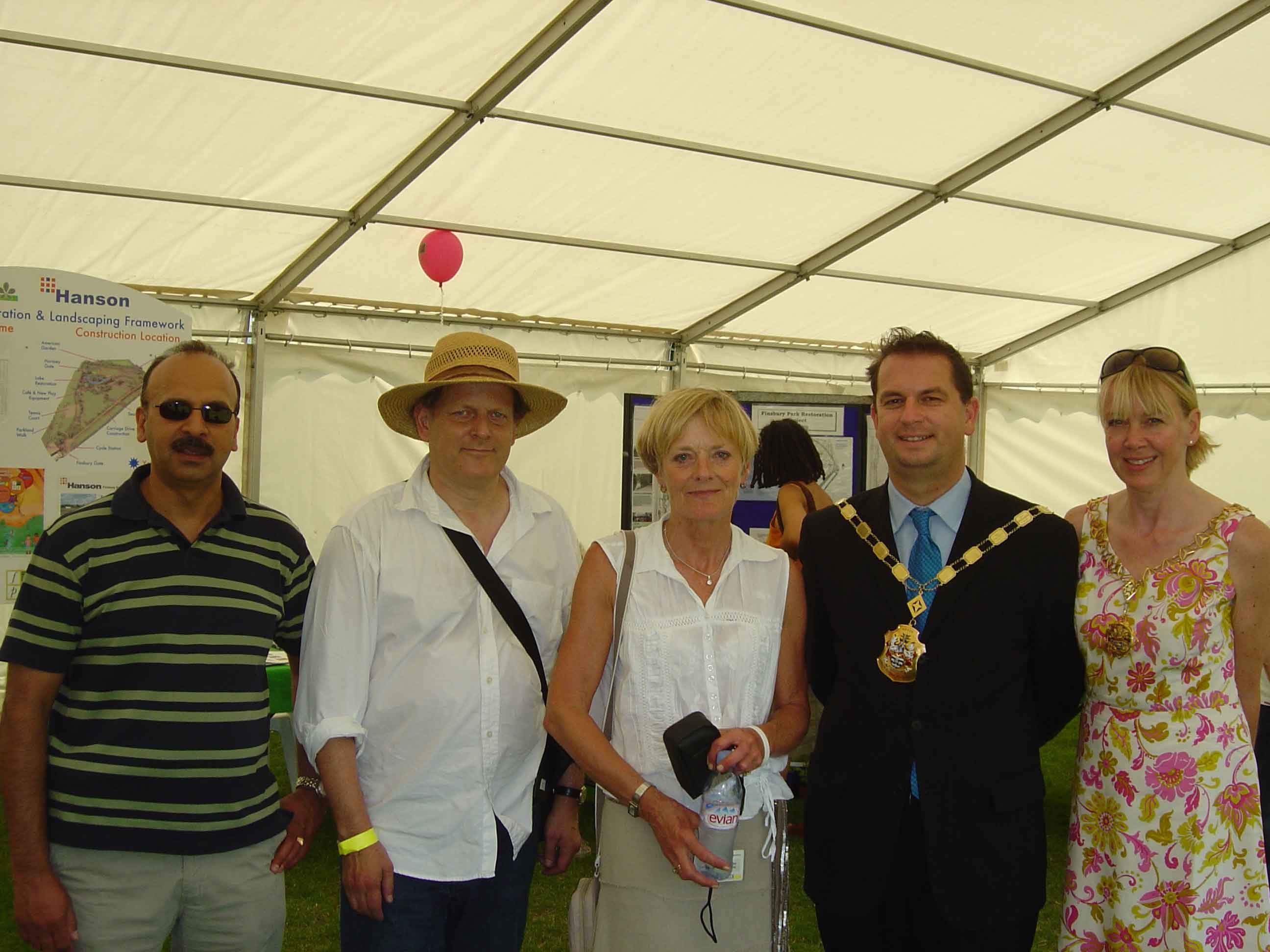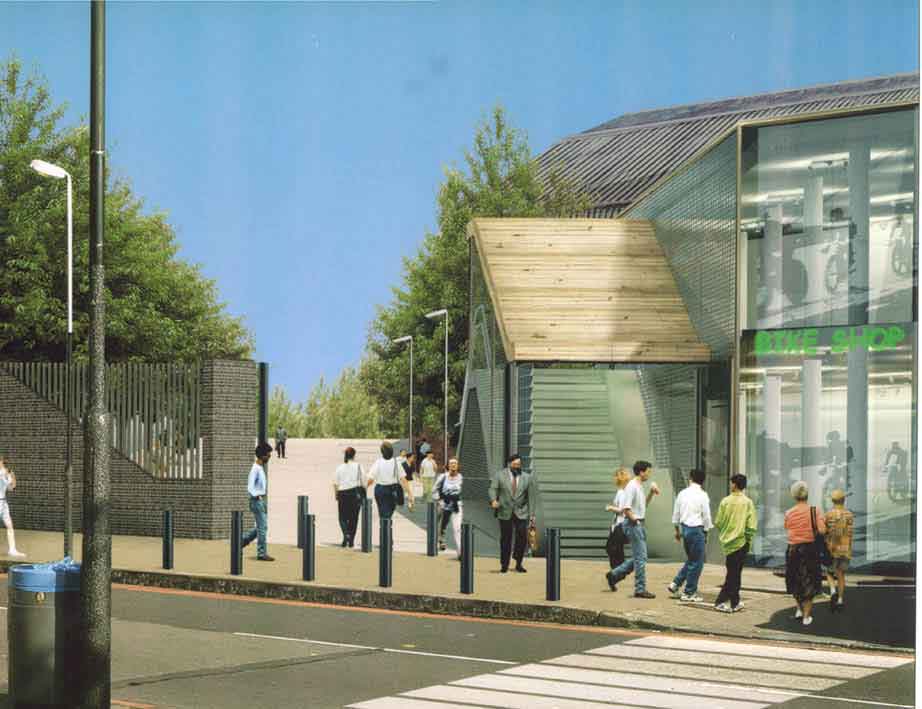|
Black Pitch
The project aimed to address the concerns raised by the community about lack of provision for young people and the lack of community facilities within the area. It involved the transformation of a dangerous 'eyesore' land into community facilities to reduce anti-social and nuisance behaviour that had led to criminal damage by young people in the locality. The scheme involved the creation of outdoor recreational facilities for children, young people and the community in Napier Road. The scheme combined three areas, a leisure (football, basketball, netball), an under seven fixed play (slide, trim trail) and seated grassed area. The recreational area provided a much needed resource for an isolated community. The facility was utilised by the local primary school (Ranelagh) and was also available for community use outside of school hours.
Capacity Building
As part of the exit strategy for a £37.5 million regeneration programme a capacity building tender was developed and a specialist community development organisation was recruited to deliver a Capacity Building programme, which enabled most of its existing projects, to increase the capacity of local people to participate in these processes and take forward the achievements at the end of five years. The project had two main areas of development; a) Continuation Funding to help existing projects to secure their long-term future by assisting them to develop continuation strategies and access other funding sources, mainly through technical support and fund raising programmes b) Capacity Building, primarily aimed at Black and Ethnic Minority organisations, to develop appropriate networks and organisational abilities to access public and private funds.
Arts
The need for a Public Arts Plan emerged from the local Arts Strategy group who identified a number of gaps in arts provision within the area. We developed a framework for community led public arts projects to create a particular 'sense of place' and ownership for local people. The overall plan created a positive connection between the local communities and the local regeneration work, through an arts programme involving local people in identifying and designing interventions in the environment (community logo's, public art, signage, seating, planting, lighting, temporary installations) creating a locally distinctive landmarks. Other artforms relating to video, music, performance and new media were also explored to provide further opportunities for community involvement.
Community Chest- North London

We were commissioned to establish a Community Chest Fund aimed at promoting social entrepreneurship and to encourage more people to become actively involved in community activities. The fund was to compliment and add value to existing grant programmes in the area by focusing on the development of new and innovative community projects. There were already a number of small grant programmes running in the area provided by three local authorities, the Arsenal Football Club and the Peabody Trust, which were either all heavily over-subscribed and in some cases difficult to access. We developed a Community Chest programme that had a different emphasis in that access was not restricted solely to already established groups. Individual residents were also able to apply to it for projects that had a discernible community benefit. The approach drew from the experience of the Millennium Awards, which provided funding for local people to put their ideas into action, and so fulfilling personal goals and enriching their communities. The effect of the Millennium Awards has been to galvanise grass-roots activity and to help to bring about lasting social change. In the case of this scheme, we built stronger linkages between individual activity of benefit to the community and existing community partnerships to strengthen and extend community networks. Individual applicants also received the support of sponsoring community organisation.
Community Buildings

Research by the local partnership found that the voluntary sector in the area was demoralised and fragmented, particularly in the light of local authority funding cuts. It was recognised that community buildings were a valuable resource, and assisted in the delivery of community projects. Islington and Shoreditch housing association received money through the partnerships feasibility fund to carry out an audit of community buildings in the area, particularly looking for those which could benefit from a quick wins programme. They found that the buildings used by the voluntary and community sector in the area suffered from poor health and safety standards, poor accessibly and poor security. Coupled with this, the fear of vandalism and break ins, was preventing groups from developing their activities in a meaningful way. In order to meet the needs of their communities and to make their projects more sustainable we found that many of the organisations in the area wished to expand their activities to address social exclusion initiatives. We proposed that a budget was established for a 'quick win project', to improve up to 12 community buildings in the area, including a list of such buildings. The buildings were refurbished and approved over a 6-12 month programme and the evaluation exercise informed that this project had achieved lasting improvements for the general public, and in raised the profile and improve the moral of the voluntary sector.
Drugs Education
We managed a project to address the growing problem of drug misuse among the young people of London. The project was developed on the back of the crime concern report, commissioned by the Tackling Crime Theme Group which specifically focuses on the need for preventative and pre-emptive action to be taken around drug misuse. The project targeted young people between the ages of 11-20 as they had been identified as the key group for concern. The report identified by age and types of crime young people who had substance misuse and crime issues, both activities that were regarded as allied. The project also further addressed the key issues of information to parents and carers as they were often in the forefront of the fight against drug misuse, but possessed very little information.
|
